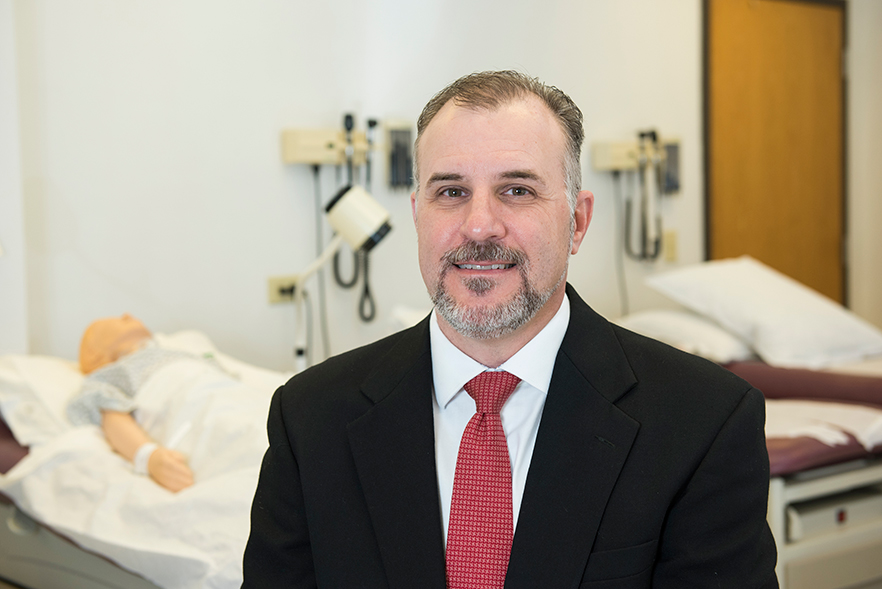Nursing scholar hopes research will improve care for city’s underserved

Darren Absher started saving lives as an Emergency Medical Services volunteer at age 13. Three decades later, Absher has earned a Doctor of Nursing Practice (DNP) from Winston-Salem State University (WSSU).
The degree is the latest step for Absher, a father of two teenagers from Lewisville who entered the nursing field in 1994 after completing WSSU’s Paramedic to Bachelor of Science in Nursing (BSN) program.
“Nursing has provided me with tremendous experiences, personal growth opportunities and is a profession with a broad array of opportunities,” says Absher, who has experience as a family nurse practitioner (FNP) in the emergency, intensive care and family medicine/urgent care units.
For his capstone project, titled “Evaluating Interprofessional Integration of a Nurse Practitioner in a Community Health Clinic for Hispanic/Latino Patients,” he researched how healthcare teams work together to treat patients at the Winston-Salem Community Care Center, the largest and most comprehensive free clinic in North Carolina.
“The health of many people who are impoverished is often ignored in our country,” he says. “Unfortunately, many of them are ethnic minorities. I was particularly interested in this demographic after recognizing Hispanic/Latino people accounted for a majority of patients utilizing this safety-net clinic and represent the fastest growing segment of the overall U.S. population.”
Absher measured team-based care at the clinic by analyzing the number of referrals between interprofessional team members, and through the sociodemographic and characteristics of Hispanic or Latino patients who were seen at the clinic.
“Hispanic/Latino people in our region are particularly disadvantaged compared with national statistics in terms of poverty, unemployment, low English-proficiency and educational achievement as well as health status,” he says. “The research also supported the need to expand interprofessional team-based care and systemic implementation of a Chronic Care Model, an organized approach for caring for people with two or more chronic diseases, especially for Hispanic/Latino patients.”
He says he hopes to take the knowledge he learned to help future nurse practitioners learn to apply evidence in treating underserved populations locally and globally.
He says he was drawn back to WSSU because of its Center of Excellence for the Elimination of Health Disparities and strong social justice focus.
“For me, WSSU was the obvious choice for my doctoral studies. My BSN experience here was phenomenal and set my professional career in motion in no small part thanks to each and every faculty and staff,” he says. “I have never encountered more dedicated faculty and staff to the university’s mission and focus on social justice and healthcare disparities.”
Absher also earned a B.S. in biology from the University of North Carolina at Chapel Hill and a Master of Science in Nursing, Family Nurse Practitioner (MSN-FNP) from Old Dominion University.
Absher is one of 11 WSSU Doctor of Nursing Practice 2017-18 graduates, and will be recognized at the commencement on May 18.
The DNP program, one of two doctoral programs at WSSU, launched in 2013. It prepares nurses to become clinical leaders in healthcare and academic settings and to implement evidence-based healthcare practice.
WSSU offers one of the largest and most comprehensive nursing programs in North Carolina. For more information, please visit the Division of Nursing's website.
Note: This is one of a series of articles highlighting WSSU's Class of 2018.
